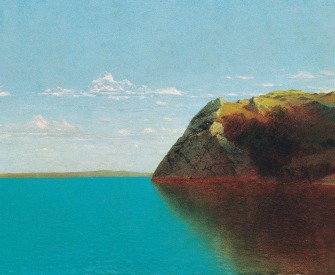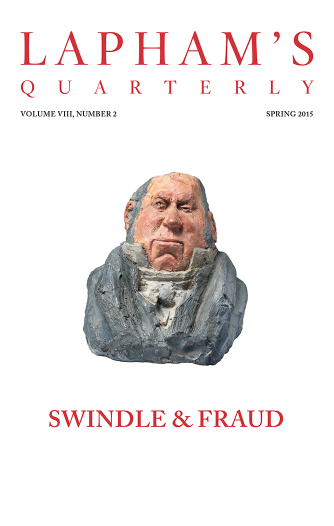Just as the seed of man becomes a man, and a buried date stone becomes a palm tree, so the knowledge of God acquired on earth will in the next world change into the vision of God, and he who has never learned the knowledge will never have the vision.
This vision will not be shared alike by all who know, but their discernment of it will vary exactly as their knowledge. God is one, but he will be seen in many different ways, just as one object is reflected in different ways by different mirrors, some showing it straight and some distorted, some clearly and some dimly. A mirror may be so crooked as to make even a beautiful form appear misshapen, and a man may carry into the next world a heart so dark and distorted that the sight which will be a source of peace and joy to others will be to him a source of misery. He in whose heart the love of God has prevailed over all else will derive more joy from this vision than he in whose heart it has not so prevailed. Just as in the case of two men with equally powerful eyesight gazing on a beautiful face, he who already loves the possessor of that face will rejoice in beholding it more than he who does not. For perfect happiness mere knowledge is not enough, unaccompanied by love, and the love of God cannot take possession of a man’s heart till it be purified from love of the world, which purification can only be effected by abstinence and austerity. While he is in this world, a man’s condition with regard to the vision of God is like that of a lover who should see his beloved’s face in the twilight while his clothes are infested with hornets and scorpions, which continually torment him. But should the sun arise and reveal his beloved’s face in all its beauty, and the noxious vermin leave off molesting him, then the lover’s joy will be like that of God’s servant who, released from the twilight and the tormenting trials of this world, beholds him without a veil.
Abu Suleiman said, “He who is busy with himself now will be busy with himself then, and he who is occupied with God now will be occupied with him then.”
Yahya ibn Muaz relates, “I watched Bayazid Bistami at prayer through one entire night. When he had finished, he stood up and said, ‘O Lord! Some of your servants have asked and obtained of you the power to perform miracles, walk on the sea, and fly in the air, but this I do not ask. Some have asked and obtained treasures, but these I do not ask.’ Then he turned and, seeing me, said, ‘Are you there, Yahya?’ I replied, ‘Yes.’ He asked, ‘Since when?’ I answered, ‘For a long time.’ I then asked him to reveal to me some of his spiritual experiences. ‘I will reveal,’ he answered, ‘what is lawful to tell you. The Almighty showed me his kingdom, from its loftiest to its lowest. He raised me above the throne and the seat and all the seven heavens. Then he said, “Ask of me whatever thing you desire.” I answered, “Lord! I wish for nothing beside you.” “Verily,” he said, “you are my servant.” ’ ”
He who supposes that it is possible to enjoy happiness in the next world apart from the love of God is far gone in error, for the very essence of the future life is to arrive at God as at an object of desire long aimed at and attained through countless obstacles. This enjoyment of God is happiness. But if he had no delight in God before, he will not delight in him then, and if his joy in God was but slight before, it will be but slight then. In brief, our future happiness will be in strict proportion to the degree in which we have loved God here.
But (and may God preserve us from such a doom!) if in a man’s heart there has been growing up a love of what is opposed to God, the conditions of the next life will be altogether alien to him, and that which will cause joy to others will to him cause misery.
This may be illustrated by the following anecdote: a certain scavenger went into the perfume sellers’ bazaar and, smelling the sweet scents, fell down unconscious. People came around him and sprinkled rose water on him and held musk to his nose, but he only became worse. At last one came who had been a scavenger himself. He held a little filth under the man’s nose, and he revived instantly, exclaiming with a sigh of satisfaction, “Ah! This is perfume indeed!” Thus in the next life a worldling will no longer find the filthy lucre and the filthy joys of the world. The spiritual joys of that world will be altogether alien to him and but increase his wretchedness. For the next world is a world of spirit and of the manifestation of the beauty of God. Happy is that man who has aimed at and acquired affinity with it. All austerities, devotions, studies have the acquirement of that affinity for their aim, and that affinity is love. This is the meaning of that saying of the Quran, “He who has purified his soul is happy.” Sins and lusts directly oppose the attainment of this affinity. Therefore the Quran goes on to say, “And he who has corrupted his soul is miserable.” Those who are gifted with spiritual insight have really grasped this truth as a fact of experience, and not a merely traditional maxim. Their clear perception of it leads them to the conviction that he by whom it was spoken was a prophet indeed, just as a man who has studied medicine knows when he is listening to a physician. This is a kind of certainty that requires no support from miracles such as the conversion of a rod into a snake, the credit of which may be shaken by apparently equally extraordinary miracles performed by magicians.
From The Alchemy of Happiness. Appointed a professor of law at the Nizamiyah college in Baghdad in 1091, at the age of thirty-three, al-Ghazali suffered a spiritual crisis in 1095 and left for Syria, renouncing book learning in favor of Sufism, through which he came to believe one might purify the soul from ignorance in order to receive wisdom directly from God. “I read books until I understood all that could be learned by study and hearsay,” he wrote in The Deliverer from Error, his autobiography. He died in Tus, his birthplace, in 1111.
Back to Issue


